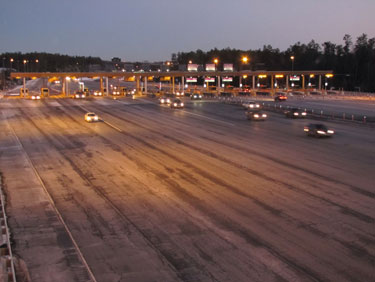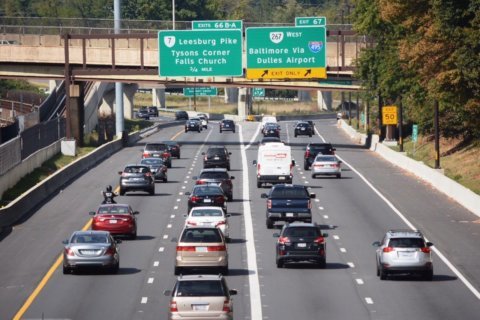As even higher tolls are on the horizon for Virginia’s Dulles Greenway, pressure is mounting to rein in those hikes — but a move to do just that failed to get the needed support in Richmond on Thursday.
The owners of the Dulles Greenway, a privately-owned toll road in Loudoun County, have applied for five years of rate hikes that would push the cost of a one-way trip during peak hours to about $8 each way by 2025.
Currently, the highest toll is just under $6, which is still too high for some Loudoun County leaders and residents. They favor a bill that would further tighten oversight of the toll road and put additional objective measures in place before toll prices could increase.
“Because of a lack of clarity, those toll increases have generally always been approved,” Del. Suhas Subramanyam said.
While the goal of the highway should be to maximize use, there’s a feeling the road’s owners are trying to push residents off it in order to save money, Leo Rogers, the Loudoun County attorney, said.
“Toll rates should be set at a rate that maximizes traffic rather than maximizes return,” said Rogers, appearing before Virginia’s Committee on Labor and Commerce. “The users of the Greenway go down, the Greenway still makes money.”
Even though Loudoun County is the fastest growing county in the state, and one of the fastest growing counties in the country, traffic on the Greenway isn’t seeing the same increase.
“Because they have a contract with VDOT, should the traffic trip certain limits, then they’re required to make improvements to the Greenway,” Rogers said.
Built in the 1990s for about $425 million, the toll road is currently about $1 billion in debt, records indicate.
“After 25 years of collecting tolls, the debt has tripled,” said Rogers. “The Greenway said it has never made a profit. With a one-third increase of tolls over the next five years… someone is making money.
“Roughly, the Greenway is bringing in $100 million a year in tolls. For a road that cost $425 million in the 1990s, it’s paid 25 years’ worth of tolls. And those tolls will continue to increase until 2056, at which point that debt will be extinguished.”
Del. Wendy Gooditis also argued for the bill, echoing Rogers’ comments about how the road is negatively impacting traffic around the county. She later became one of eight votes cast in support of the bill.
“Traffic on the Greenway is going down each year,” said Rogers, “while traffic in Loudoun County is going up. Traffic in Northern Virginia is going up. That causes not just an impact on users, but an impact on the public [and] the Commonwealth.”
Rogers also argued the state needs to impose distance-based tolling on the road. Currently, commuters pay the same rate if they get off the Greenway at the first exit or take it to the end.
However, after a warning from Whitt Clement, a former delegate who was the state’s transportation secretary under former Gov. Mark Warner and is now a lobbyist working for the owners of the Greenway, the bill stalled.
The House committee failed to approve the bill after it deadlocked at 8-8, with one member abstaining and several others absent from the hearing.
“The bill attempts to change and interfere with a contract between two parties,” Clement said.
He also said it’s constitutionally dubious.
“This bill will violate a long-standing contract that this private entity and Virginia has honored and lived up to,” said Clement. “If you look up the state constitution, Article 1, it prohibits impairing of contracts or impairing the obligations of contracts. If these tests [in the legislation] were adopted, it would constitute a taking of property without just compensation.”
Clement further warned the changes imposed on the Greenway would ultimately bankrupt the company that owns it, which paid about $4 million dollars annually in real estate taxes to Loudoun County, he said.
While the legislation may be dead for now, Loudoun County Supervisor Matthew Letourneau told Loudoun Now some form of it may be revisited before the General Assembly adjourns.








